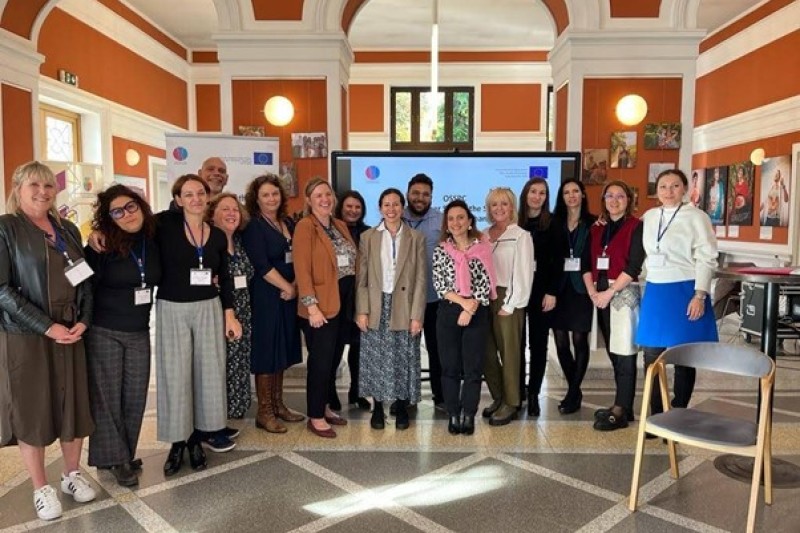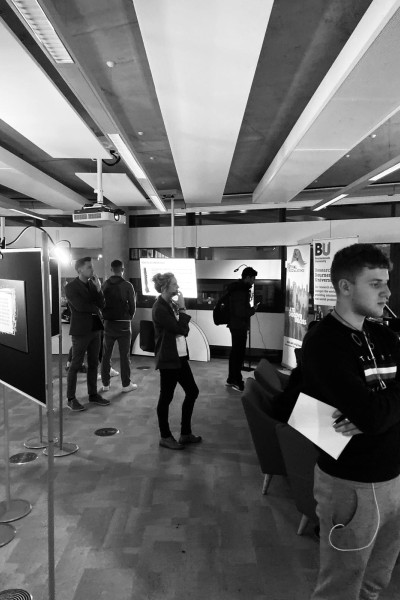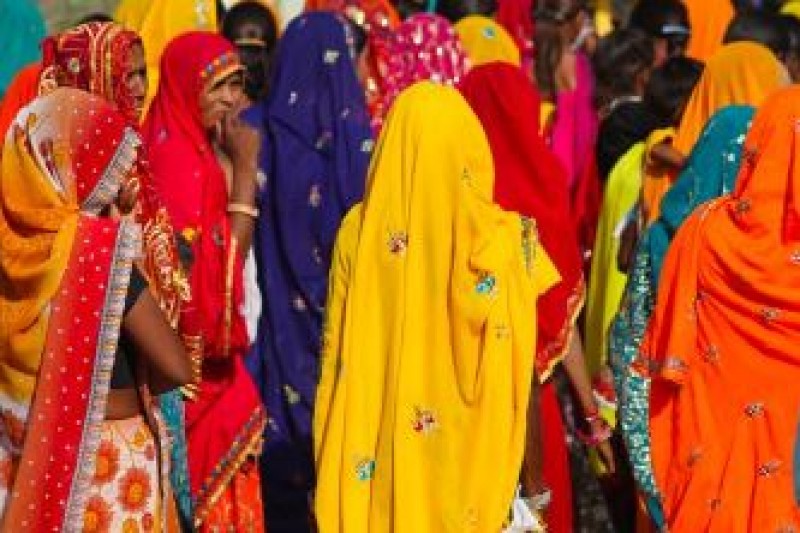Combining insights from different research areas, we strive to obtain a unique perspective on the issue of sexual violence. Together, we are improving the prevention and reduction of sexual violence and contribute to bringing offenders to justice.
Our research is impacting academic knowledge and can be directly applied to policy and practice. Thus, we are not only affecting the criminal justice system but the public in general, and thereby potential victims of sexual violence.
Find out more about the projects and campaigns taking place at Bournemouth University:
Research projects:
Operation Soteria Bluestone
(Home Office, Mayor’s Office for Policing and Crime)
Operation Soteria Bluestone is a national, multi-institution project designed to transform the manner in which the police respond to rape and other sexual offences. It comprises of six pillars of work, of which BU is directly involved in two:
Pillar 2: Targeting Repeat Suspects
This pillar focuses on targeting repeat suspects, and examines how repeat sex offence suspects are identified, investigated, and disrupted by the police. Led by Dr Kari Davies (Department of Psychology) and with Dr Jyoti Belur (University College London), Ioana Crivatu, Dr Anna Gekoski, Margaret Hardiman, Rosa Heimer, Anca Iliuta, Asmaa Majid, Dr Kristina Massey (Canterbury Christ Church University), Elena Reid, and Hazel Sayer, it involves working closely with Professor Miranda Horvath and a team at the University of Suffolk, who are running Pillar 1 – Conducting Suspect-Focused Investigations.
Through Pillars 1 and 2, five PhD studentships are being funded, with research being conducted by Arianna Barbin, Sophie Barrett, Zoe Callon, Lily Hill, and India Ingram-Hawkes. The project is in its second year and involves working closely with five police forces and collaborating with a further 14, along with a number of other agencies and organisations. It is funded by the Mayor's Office for Policing and Crime.
Publications:
Dalton, C.T., Barrett, S., Horvath, M.A.H. et al. A Systematic Literature Review of Specialist Policing of Rape and Serious Sexual Offences. Int Criminol 2, 230–252 (2022)
Davies, K., Horvath, M.A.H. Guest Editors’ Introduction: Project Bluestone: Improving the Police Response to Rape and Serious Sexual Offending in the United Kingdom. Int Criminol 2, 219–221 (2022)
Pillar 6: Examining, Understanding, and Improving the Use of Digital Material in RASSO Investigations
Starting in April 2022, this research project became the sixth pillar of Operation Soteria Bluestone, which seeks to improve the investigation and response to rape and serious sexual offences (RASSO). The focus of Pillar 6 is digital forensics and to date the research team have investigated the importance, prominence, and problems digital evidence (such as phone data) presents to a RASSO investigation.
Thus far, four deep dives into police forces have been conducted, looking into how they manage digital evidence, along any barriers and good practices experienced by those directly involved in RASSO cases. In its second year, Pillar 6 aims to create a victim-driven, evidence-based digital landscape within RASSO teams and digital forensic units.
The project is funded by the Home Office and Mayor’s Office for Policing and Crime. Pillar 6 is inter-institutional, being led by Tiggey May from the Institute for Criminal Policy Research at Birkbeck, University of London. Dr Rachel Skinner and Dr Catherine Talbot co-lead the BU aspect of this project within the Department of Psychology.
A Cross-Cultural Comparison of Distinctive Behaviours Exhibited in Rape Offences, and Their Potential Use in Behaviourally Linking These Crimes
(British Academy/Leverhulme Small Research Grants)
Previous research suggests that crime analysts often rely on distinctive behaviours exhibited by offenders to find behavioural links between offences in a series, on the basis that they are assumed to be displayed consistently over time. However, little research has documented the behaviours that are distinctive, whether offenders display them consistently, or whether this varies across cultures.
This project aims to address this gap in knowledge by identifying the distinctive behaviours exhibited in rape offences, in UK and US samples of offences, and to test whether these distinctive behaviours are also consistently demonstrated by offenders.
Funded by the British Academy/Leverhulme Small Research Grants, this project is led by Dr Kari Davies (Department of Psychology), with co-investigators Dr Rachel Lovell (Cleveland State University, Ohio), Professor Jessica Woodhams (University of Birmingham), and Research Assistant Ioana Crivatu.
A Likelihood Approach to Case Linkage Analysis: Understanding Behavioural Consistency and Coincidence
This project is exploring whether likelihood ratios can be used to demonstrate whether certain behaviour is more likely to co-occur in linked offences (behavioural consistency) compared to unlinked offences (behavioural coincidence). This will be useful in terms of demonstrating, at a theoretical level, the use of likelihood ratios compared to other approaches to calculating behavioural consistency in linked compared to unlinked offences.
The project will involve creating a tool for the Behavioural Investigative Advisers at the National Crime Agency to use as part of their case linkage analysis practice. Led by Dr Kari Davies and with co-investigators Dr Terri Cole and Elena Reid (Department of Psychology), this study is being conducted with Professor Jessica Woodhams (University of Birmingham), Dr Matthew Tonkin (University of Leicester), Dr Matthew Brett, and Lee Rainbow from the National Crime Agency, as well as the Serious Crime Analysis Section of the National Crime Agency.
Disclosures and Safeguarding
Two current projects (December 2021 – ongoing) by Dr Emma Kavanagh from the Department of Sport & Event Management are examining the disclosure of abuse and safeguarding practices.
One project is researching the disclosures of abuse in the Australian Sport context. The research is being conducted alongside colleagues from Victoria University, Australia, and has examined the disclosure process in grassroots sport and highlights the complexity of responsibility placed on children to report abuse.
Emma has also worked with the University of Toronto, Canada, in creating sport specific training for trauma counsellors who will be first responders for the Courage First Athlete helpline in the US. The helpline provides a free service for children and adults in any sports community, with access to specialised counsellors offering emotional support, crisis intervention, athlete-focused resources, and information on reporting suspected abuse.
While the counsellors are specialists in offering support to those in crisis, it was acknowledged that understanding the sporting context and why abuse in this setting can look different to non-sporting spaces was a knowledge gap. The research team provided training and will be following up to capture the impact of the helpline as it supports those who utilise its services.
Gender-Based Violence in Virtual Space
Social and online media has provided pertinent spaces for high profile women to engage in self-representation, challenge hegemonic masculinity and bypass the gatekeepers of traditional media outlets. This self-representation is particularly important for women from marginalised groups who may be sparsely reported on in mainstream media.
Alongside the benefits of engaging in virtual worlds the presence of violence in these spaces is now widely accepted as part of the fabric of online social commentary. While anyone engaging with an online audience has the potential to experience abuse, women and girls are more often the targets or recipients of such violence.
Through this research, Dr Emma Kavanagh from the Department of Sport & Event Management has started to frame virtual violence toward athletic populations more broadly and further focussed on online gender-based violence in sport which to date has received limited exploration. The work has examined the experiences of high-profile women (such as sports women and academics) negotiating virtual spaces and considers the issue of staying safe online.
In doing so, the need for greater protection and regulation of virtual environments in order to support those who use them is highlighted. Projects in this space are ongoing. Working alongside colleagues from Charles Sturt University, Australia, Emma has examined various types of violence experienced online, more recently focussing on gender based sexualised violence.
The Other Side of the Story: Perpetrators in Change
(European Union's Rights, Equality and Citizenship Programme)
The Other Side of the Story: Perpetrators in Change is a European Union's Rights, Equality and Citizenship Programme funded research project for which Dr Jane Healy (Department of Social Sciences & Social Work), Dr Terri Cole (Department of Psychology), and Dr Orlanda Harvey (Department of Social Sciences & Social Work) represented the UK on the project, with colleague Dr Jade Levell at the University of Bristol. The UK team had the lead for Work Package 2, which was focussed upon conducting research in relation to non-criminal justice intervention programmes for perpetrators of domestic violence.
This was focussed upon delivering relevant research in relation to intervention programmes for perpetrators of domestic violence.
The aim is to provide an evidence base to enhance support services. Domestic violence and specifically abuse against women and girls is widespread, however the response from different countries is sometimes mandatory, sometimes voluntary, usually underfunded and often sporadic. The current research involved 173 participants from Cyprus, Greece, Italy, Romania, and the UK:
- Focus groups with professionals working with domestic violence and abuse (n = 20 groups)
- An online survey for survivors of domestic violence and abuse (n = 95)
- Interviews with perpetrators who had accessed support (n = 18)
There were key thematic areas, all related to the need for a coordinated community response, which would include cohesive localized referral pathways, adequate funding, and publicity to help victims and perpetrators recognize abuse – in a way which reduces stigma yet holds perpetrators to account.
Training is essential, as a reoccurring theme was that reports to health practitioners such as GPs often did not receive an appropriate response. Ultimately, this research found an enormous amount of good practice across the partner countries and evidence that effective service provision for perpetrators can inspire behaviour change, harm reduction, and positive futures.
A series of both on- and off-line training was delivered to practitioners and academics, and a European conference was held to share findings in October 2022 in Romania.
Find more information on the OSSPC Europe website
Ways of Seeing Sport Coaching Violence
(Economic and Social Research Council)
Dr Emma Kavanagh (Department of Sport & Event Management) explored the efficacy of arts-based methods for engaging practitioners in the topic of abuse and safeguarding in sport alongside fellow BU colleague Dr Adi Adams.
The team curated an exhibition that showcased data from earlier research on abuse in sport. This ESRC event provided an opportunity to engage practitioners in debates surrounding the safety of sporting spaces as a way of promoting the duty of care in practice. The event brought to life qualitative social science research data, currently available to academics through peer-reviewed journal articles through the production of an immersive arts-based installation.
The data was used to enable those who attended to see/hear/feel and confront the contemporary issue of inter-personal violence in the world of sport coaching, from the perspective of ‘others’. The event aimed to bring sport coaches (and other practitioners) together around a shared concern/problem in the sport industry, with the aim of inspiring awareness, understanding, empathy, care, and practical solutions to reducing interpersonal violence.
An arts and media-based approach is often adopted in the education of other ‘caring’ professions engaged in complex, difficult, ‘social’ and emotional work (e.g. nurses, medical practitioners, social workers, palliative care workers), yet has gained limited application in the sporting profession. Participants moved around and shared the immersive space with others, experiencing the ‘felt difficulty’ (Trevelyan et al., 2014) of ‘what it feels like’ to experience violence and intimidation as a participant in sport.
They have recently published a paper which captured attendees’ experiences of the exhibition and their reflections on the impact of doing so on themselves and their practice.
Publications:
Kavanagh, E. Adams, A., & Harvey, T. (2023). Encountering unsettling stories of sport coaching violence: practitioner reflections on attending an interactive and immersive installation on the topic of abuse in sport. Sports Coaching Review, https://doi.org/10.1080/21640629.2023.2195767
Police Misconduct
Dr Fay Sweeting, Dr Terri Cole, and Professor Peter Hills (Department of Psychology) have conducted research into abuse of position for sexual gain in the police. Fay and Terri have undertaken focus groups with trainers, analysed case files, and considered case studies in conjunction with the police.
One paper, for example, looks at the current state of police sexual misconduct in the UK. Using misconduct hearing outcomes, they identified seven types of sexual misconduct and found that the greatest category was when police officers had sexual relationships with vulnerable victims of crime. They also found regional differences in dismissal, meaning that for some types of misconduct, officers were more likely to be dismissed if they worked in the Southern half of the UK.
Their work was also discussed on Channel 4 and in other articles in Policing Insight, The Conversation, and The Guardian
Media Action Against Rape
Media Action Against Rape (MAAR) is a Global Challenges Research Fund (GCRF) research and capacity building project led by Bournemouth University and UNESCO in New Delhi.
It is led by Dr Chindu Sreedharan, Associate Professor in Journalism (Department of Communication and Journalism) and Professor Einar Thorsen, Executive Dean of the Faculty of Media and Communication.
Launched in 2018, this study was designed to map the journalistic challenges of reporting rape and sexual violence across India. MAAR was a research and capacity building project that served to engender sustainable impact—specifically, for rape reportage, journalism education, and resilience against gendered violence towards women.
Our research report, Sexual Violence and the News Media: Issues, Challenges, and Guidelines for the News Media has been published as an UNESCO report. Several other outputs, including books, book chapters, and journal papers have emerged out of the project. Dissemination of findings and capacity building emerging out of the research continue.
More information on the project is available on the MAAR website
To be added to a mailing list to find out more about these and future projects, please contact Rebecca Reichel at: [email protected]
Campaigns:
We are joined in our efforts by SUBU, the Students’ Union at BU, who believe that sexual misconduct, harassment, and violence are #NeverOK. To ensure that students feel safe while going out, they have a series of initiatives to help.
Find out more about their projects below:
Ask for Angela
Do you feel that you’re not in a safe situation, or want some help getting out of an uncomfortable interaction? Ask for Angela!
If you feel unsafe, vulnerable or threatened while in any SUBU venues, you can discreetly seek help from venue staff by asking them for ‘Angela’. This will indicate to staff that you need help, and they will support and assist you to get out of the situation you are in.
Venues included in the scheme:
- The Old Fire Station
- Dylan’s
- The Student Centre – SUBU staff within the Student Centre can be identified by their blue lanyards
Safer Taxi Scheme
If you become stuck without any money on a night out and need to get home, you can take a 'safe taxi' and pay later.
All you need to do is call 01202 556677, quote ‘999-safe taxi’, arrange pick-up and show the driver your student ID. The driver will take you home and give you a receipt. SUBU will then be in touch to settle your bill. Safe Taxi cards are available from SUBU reception.
Good Night Out
The Old Fire Station is an accredited 'Good Night Out' venue. Good Night Out is an industry accreditation that ensures that venues have suitable policies and procedures in place to tackle sexual harassment and assault.
FREE anti-spiking drinks toppers are available at the Old Fire Station and at the SUBU reception on the first floor of the Student Centre, Talbot Campus.
Active Bystander Training
SUBU has worked to include training for some SUBU student leaders including Clubs and Society Committee members. Designed to identify sexual harassment and various bystander initiatives, the hope is to increase awareness and empower students to support each other. Allowing student leaders to be informed while taking part in activities within their remit.
Other campaigns
In addition, SUBU has ran several standalone campaigns promoting staying safe. Sexual Health, Awareness and Guidance, or SHAG Week, was held to remove the taboos around sex, sexual health, sexuality and everything that comes with it. Throughout the week there were games and different stalls promoting positive sexual health.
The Night Safety Fair was held in the Student Centre to promote staying safe while out in Bournemouth at night, with stalls including SUBU Advice, Night Safety Bus, The Town Pastors, who provide care to those in need on Saturday nights, and Footbus, an app where you can walk home with others on the same route.


